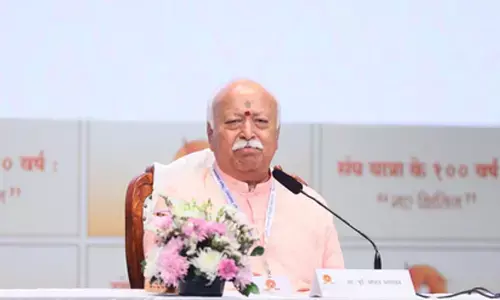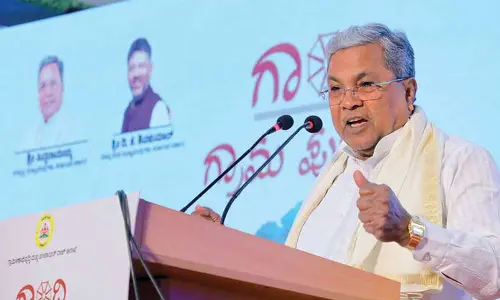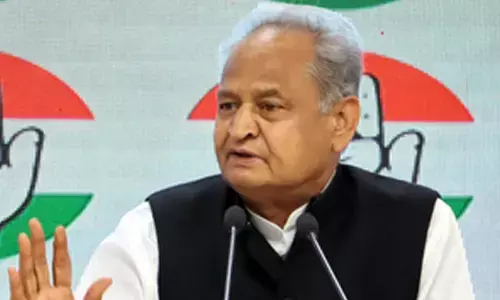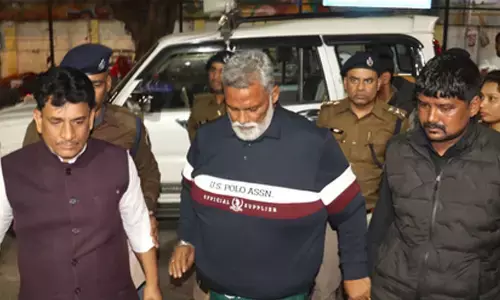Revisiting our roots
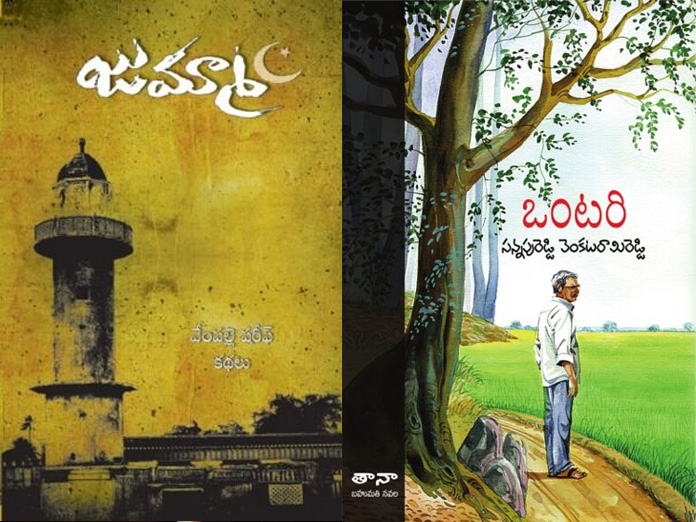
Nothing is permanent except change this adage is true when everything is changing and getting more evolved This change also had its effect on literature and its forms Of late, the success of vernacular writers in Telugu and their dent on the readership is beyond imagination The readers are ignoring the poetic beauty of language and giving much importance to the core concept of the books
“Nothing is permanent except change" this adage is true when everything is changing and getting more evolved. This change also had its effect on literature and its forms. Of late, the success of vernacular writers in Telugu and their dent on the readership is beyond imagination. The readers are ignoring the poetic beauty of language and giving much importance to the core concept of the books.
It is also noticeable that the Telugu readers have been bent towards the village backdrop stories and their local area themes. We are well aware that the Telugu readers experience great joy in reading novels and writers like Yaddanapudi Sulochana Rani, Ranganayakamma, Yendamuri amongst others made a glorious era in Telugu literature.
Now the readers are more selective, and they are prone towards natural narration. It is also noticeable that the Telugu language readers, according to their social media posts, have become readers of translated books from other languages. Books like ‘Vanavasi’, ‘Chandragiri Sikharam’ (reputed novels in Odia by Bibuthi Bhushan Bandopadhyaya), ‘Marananantaramu’, ‘Marala Sedyaniki’ (by Sivarama Karanth in Kannada) are widely read because of their realistic narration.
The contemporary Telugu writers have become aware of the tilt of readers towards the realistic representation of the situations instead of unnecessary illusionary approaches. Both in online and offline, now the wind of native language is blowing and encouraging the writers to pen their works in ‘Vyavahrika bhasha’ of their regions. The success of ‘Gilakamma Kathalu’ (Online monthly magazine) written in Godavari slang by Kanneganti Anasuaya reflects the same.
The present scenario of the Telugu novel has revealed that it has shed its trumped-up story nature and passing through a time that is elevating the status of the local language, which is good for language and its raw form that will reflect the roots of the community.
It was so right that according to Casey Miller, "Our native language is like a second skin, so much a part of us we resist the idea that it is constantly changing, constantly being renewed.” The present shift is good for the Telugu language because it will increase the readership from neo-literates. Further, in recent times the Central Sahitya Academy awards have are also won by the writers that are contributed their services for the elation of local languages.
The NRI Telugu associations are also encouraging the native language writers by honouring them with rewards. We are aware that the ‘Molakala Punnami’ by Vempalle Gangadhar (Sahitya Academy award winner), ‘Jumma’ by Vempalle Shariff (Sahitya Academy winner) ‘Shaptabhumi’ by Bandi Narayana Swami and ‘Ontari’ by Sannapureddy Venkata Rami Reddy (TANA award winners) have made their impeccable impact on the Telugu readership and exposed the beauty of native language.
It is very essential that this type of literary works in native language should have to be continued for the sustenance of the local Telugu language and to stand firm from extinction. This is the moment for which Telugu local language movement fighter Gidugu Ramamurthy Panthulu dreamt of. The writers like Namini, Kethu Vishwanatha Reddy, Dr P Kesava Reddy, Singamanenni Narayana played a vital role in this change in the Telugu novel culture and paved the way for a new tribe of writers.
We are aware of that though the urbanisation and technology rampantly destroying the village scenic beauty and its unique sacredness these books of native language are making the Telugu people revisit and recapitulate their abandoned village life and its memorable dent on their lives. It was well said by CS Lewis "Literature adds to reality, it does not simply describe it.
It enriches the necessary competencies that daily life requires and provides; and in this respect, it irrigates the deserts that our lives have already become.” So, we can hope that the vernacular writers will surely help the younger generations to identify their roots of civilisation and make them to recollect the good bygone empathetic culture and to preserve, at least, in their thoughts.
- E Gajendra Nath Reddy








